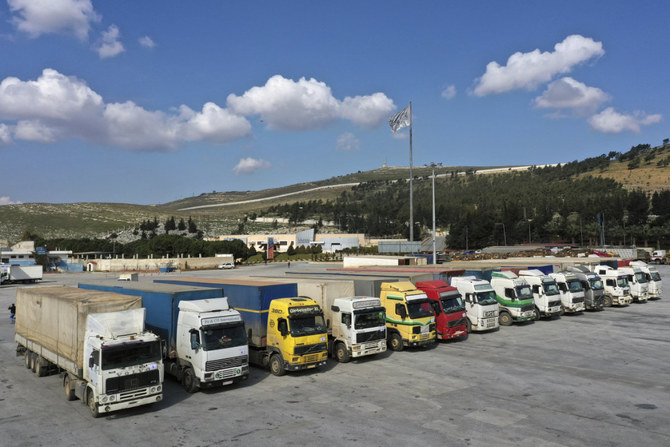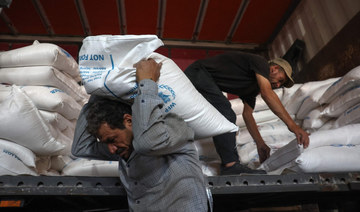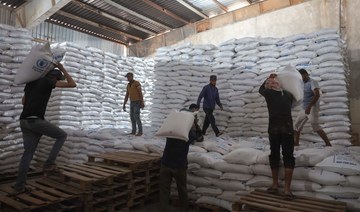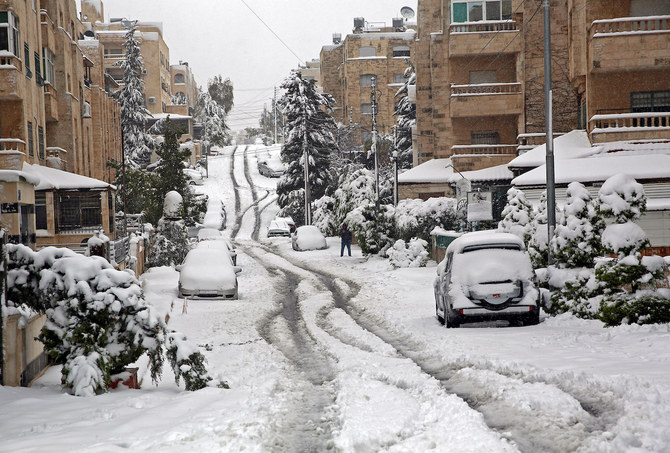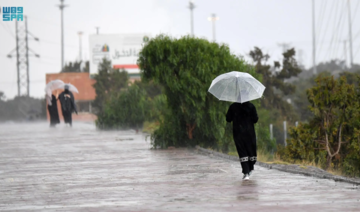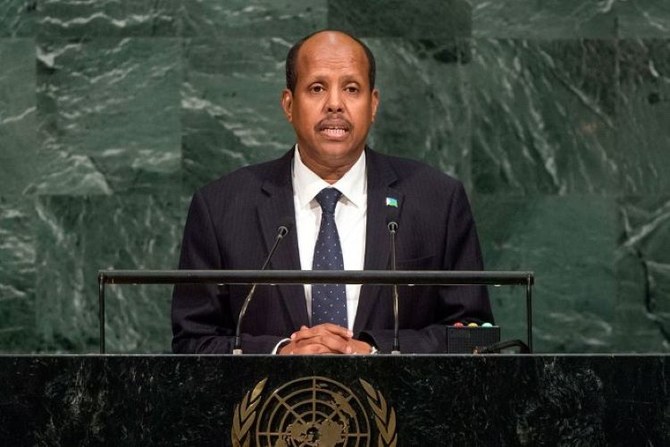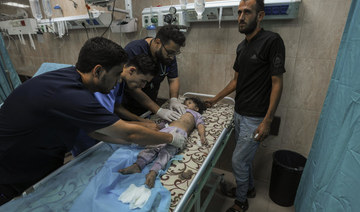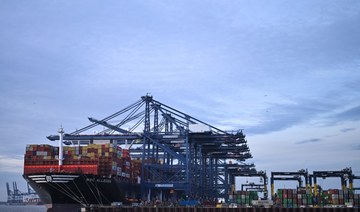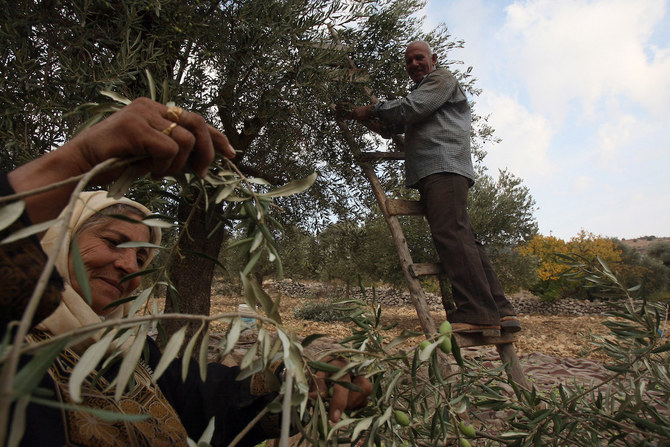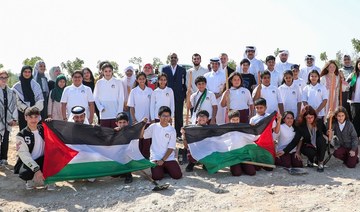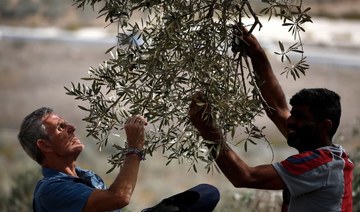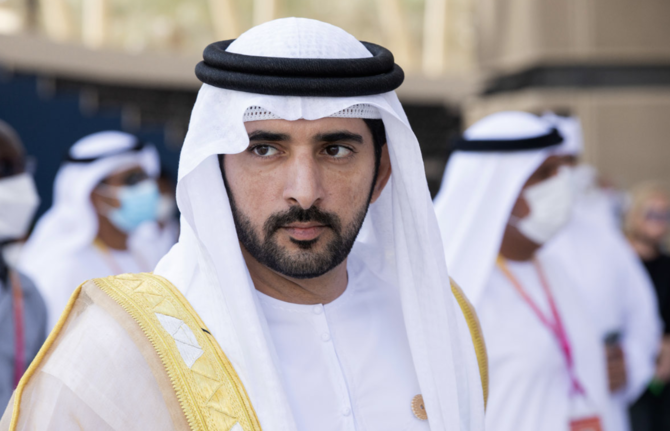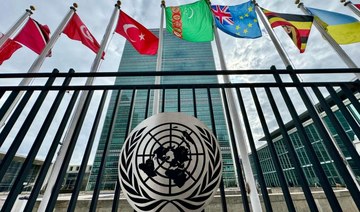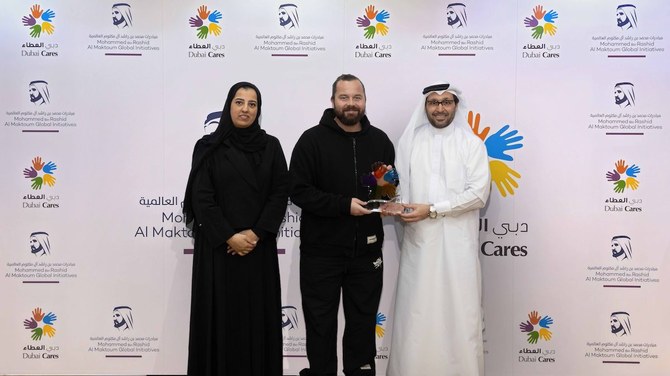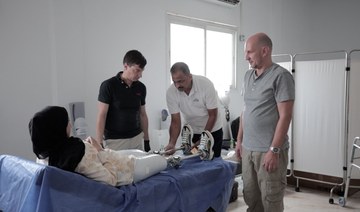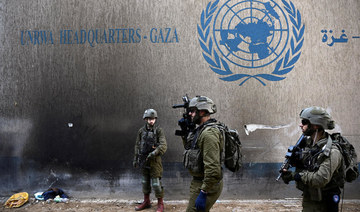IDLIB, Syria: Youssef Al-Ramadan says he always feels guilty for having to put his wife and three children to work in order to survive — and now they might not be able to get by since international aid could stop flowing from Turkiye.
Standing outside his tent in a displacement camp in northern Idlib, he is worried that their income might not be sufficient to make ends meet if the United Nations Security Council cannot renew a humanitarian border crossing that has been a critical lifeline for him and some 4.1 million people in Syria’s rebel-held northwest. The vast majority live in poverty and rely on aid to survive.
On Tuesday, the UN Security Council failed to renew the Bab Al-Hawa border crossing into opposition-held northwestern Syria from Turkiye.
Russia, a key political and military ally of President Bashar Assad, vetoed a compromise resolution presented by Brazil and Switzerland that would renew the crossing’s mandate for nine months. With the exception of China’s abstention, it was voted in favor by the majority of member states, and had the backing of humanitarian agencies and the UN Secretary General. Moscow’s rival resolution, which would renew the mandate for six months with additional requirements, failed to get the minimum of nine votes in favor, with only China giving its support.
UN spokesman Stephane Dujarric underscored Wednesday that Secretary-General Antonio Guterres “is not giving up” on trying to keep the Bab Al-Hawa crossing open, stressing that it remains “the center of gravity of the UN’s efforts to deliver aid in the northwest part of Syria.”

Workers unload bags of aid at a warehouse near the Syrian Bab al-Hawa border crossing with Turkey, on July 10, 2023. (AFP)
Like many others in Idlib, Al-Ramadan was internally displaced due to the ongoing conflict, now in its 13th year. He says he cannot go back to his hometown south of the province, because he alleges that the Syrian government and Russia confiscated his home and farmland.
“They took our land and our homes, and now they want to cut off the border crossing,” he told The Associated Press. “I’m barely able to survive with Bab Al-Hawa open, so what happens if it closes?”
Syria is still dealing with the impact of a 7.8 magnitude earthquake in February that rocked Turkiye and northern Syria in both government and opposition held areas, killing over 50,000 people.
The Security Council initially authorized aid deliveries in 2014 from Turkiye, Iraq and Jordan through four crossing points into opposition-held areas in Syria. Over the years, Russia, backed by China, had reduced the authorized crossings to just Bab Al-Hawa from Turkiye, and the mandates from a year to six months.
Russia alleges that militant groups in Idlib are taking the aid and preventing it from reaching families in need. Moscow and Beijing have been calling to phase out the UN cross-border mandate and instead route through Damascus, but Syrians in the northwest enclave say they are skeptical of the push.
The Syrian Response Coordination Group, a relief group active in northwestern Syria, slammed the Security Council’s five permanent members — France, United States, United Kingdom, Russia, and China — for what they called “strongly irresponsible actions” and “clear disregard for the fate of millions of civilians in Syria.”
International humanitarian organizations decried Russia’s veto.
“It defies reason and principle, that Security Council members would vote to not maintain all avenues of aid access for vulnerable Syrians at this time,” International Rescue Committee President David Miliband said in a statement.
Dr. Munzer Khalil, Idlib health director, told The Associated Press that he fears severe public health consequences if the Security Council cannot renew the crossing’s mandate, because many health facilities relying on UN aid will face shortages of critical medical supplies and equipment, including vaccines for children.
The recent earthquake that hit the region emphasizes “the urgency of addressing the inequitable access to aid in northwest Syria and allocating resources for both long-term and immediate recovery initiatives,” Khalil said.





